 iDE
iDE
iDE (formerly International Development Enterprises) believes that markets are the most powerful tool for creating prosperity, building resilience, and ultimately ending poverty, and that one entrepreneur can transform his/her community and millions can transform the world. iDE powers small businesses which bring families and communities out of poverty by creating solutions for food, security, nutrition, sanitation and water.

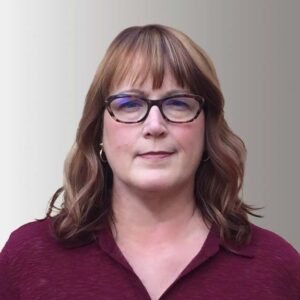
Linda Porter-Cox
P&G Alumni Grant Champion
Linda Porter-Cox
16 years P&G – in US and Latin America CMK, Product Supply & CBD
Linda joined iDE’s Board in 2018, being drawn to its model for building resilient market ecosystems to help households pull themselves out of poverty.
Linda writes: “I am passionate about creating sustainable solutions to improve peoples’ lives around the world, which is why I joined iDE’s board in 2018. IDE is grounded in an inclusive, sustainable approach which leverages human-centered design to build solutions that power local entrepreneurs to launch profitable businesses that are impact multipliers in their communities. One example of the impact potential is women farmers using their new bio fertilizer productions skills to improve their farm’s soil, the quality and productivity of their crops and their livelihoods.”
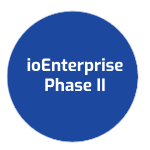
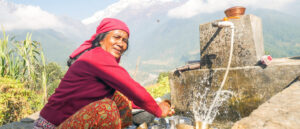 The target beneficiaries for this project are populations in marginalized ethnic groups in the Kaski District in Central Nepal. Many small-scale farmers do not have access to the agronomist knowledge and inputs necessary to improve their baseline productivity and combat new challenges related to climate change; quality fertilizer is a critical need. iDE developed an effective biofertilizer solution, resulting in less soil-borne disease and 15% greater crop yields. After a successful pilot program, iDE expanded this proven solution to 40 farmers in 2 farming cooperatives, improving farm productivity, increasing incomes and identifying the business opportunity for a new income stream as farmers may be able to sell up to 60% of the fertilizer they produce. Phase II will continue to support the work in Phase I AND expand support to include all aspects of scaling the farmers’ fertilizer businesses.
The target beneficiaries for this project are populations in marginalized ethnic groups in the Kaski District in Central Nepal. Many small-scale farmers do not have access to the agronomist knowledge and inputs necessary to improve their baseline productivity and combat new challenges related to climate change; quality fertilizer is a critical need. iDE developed an effective biofertilizer solution, resulting in less soil-borne disease and 15% greater crop yields. After a successful pilot program, iDE expanded this proven solution to 40 farmers in 2 farming cooperatives, improving farm productivity, increasing incomes and identifying the business opportunity for a new income stream as farmers may be able to sell up to 60% of the fertilizer they produce. Phase II will continue to support the work in Phase I AND expand support to include all aspects of scaling the farmers’ fertilizer businesses.
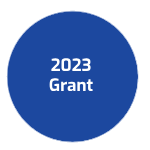
The PGAF grant funds of $23,000 will support entrepreneurship training to 42 farmers and leaders and create a sustainable, profitable income stream from two community- managed biofertilizer Collection Centers. Scope will include developing business models and business plans with/for the farmers, conducting business training (enterprise management, financial literacy and marketing), facilitating inter-district visits between farmers for idea exchange and support, training based on a ‘human centered’ sales approach to generating demand, and working with the cooperative to prepare product for sale and distribution. 400 community members will be impacted.
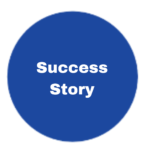
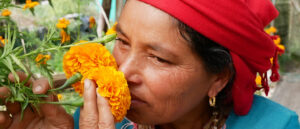 In Nepal, marigolds, known locally as sayapatri, hold significant cultural and practical value. Revered for their vibrant orange hue and symbolizing energy and creativity, these flowers also serve as a natural bug repellent for farmers like Kamala Khadkha. Kamala, a seasoned farmer in central Nepal, strategically plants marigolds around her tomato fields, offering protection from pests while also supplementing her income by selling the flowers during festivals.
In Nepal, marigolds, known locally as sayapatri, hold significant cultural and practical value. Revered for their vibrant orange hue and symbolizing energy and creativity, these flowers also serve as a natural bug repellent for farmers like Kamala Khadkha. Kamala, a seasoned farmer in central Nepal, strategically plants marigolds around her tomato fields, offering protection from pests while also supplementing her income by selling the flowers during festivals.
Facing challenges from pest infestations that have ravaged Nepal’s agricultural sector, iDE is leading the charge in promoting regenerative agricultural practices as sustainable alternatives to chemical fertilizers and pesticides. Through initiatives like vermicomposting and biochar production, iDE empowers farmers to enhance soil health, increase crop yields, and improve plant growth. Kamala, for instance, has witnessed firsthand the transformative impact of these practices in her cabbage fields, where rows treated with vermicompost and biochar have yielded significantly healthier crops compared to conventional methods.


